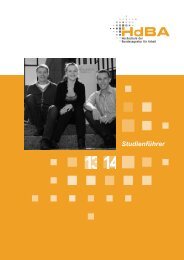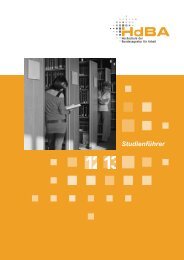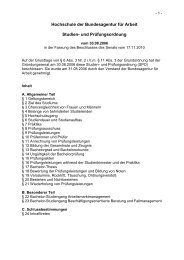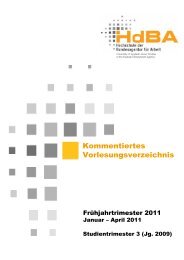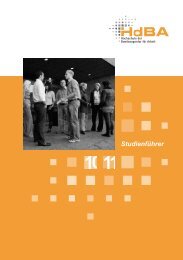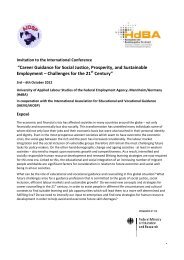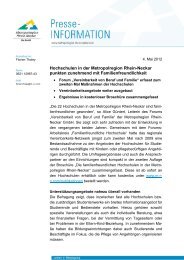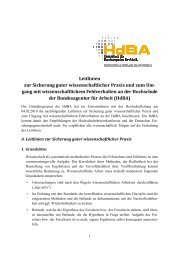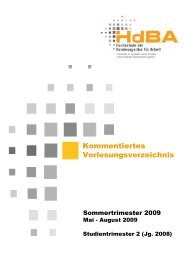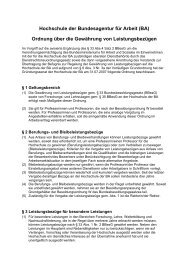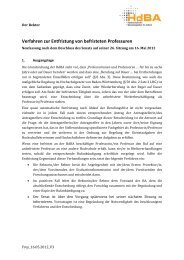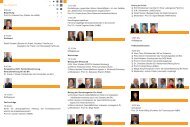Brain Drain - Hochschule der Bundesagentur für Arbeit
Brain Drain - Hochschule der Bundesagentur für Arbeit
Brain Drain - Hochschule der Bundesagentur für Arbeit
You also want an ePaper? Increase the reach of your titles
YUMPU automatically turns print PDFs into web optimized ePapers that Google loves.
�����������������������������������������<br />
���������������������������������������<br />
�<br />
�<br />
Overview<br />
Human migration denotes any movement by humans from one locality to another,<br />
sometimes over long distances or in large groups. Humans are known to have<br />
migrates extensively throughout history and prehistory.<br />
Today there are different reasons for transnational mobility which is an effect of social<br />
dynamics of globalization. On the one hand transnational corporate groups and<br />
organizations expect more and more global mobility from their employees, which<br />
effects that professional advancement only takes place by an international career<br />
(Kreutzer 2006). Furthermore there are country specific factors which dispose people<br />
to live in a foreign country. Other than migrants they decide in favour of a changing<br />
and temporary stay abroad. This individual personal development has a great<br />
influence on the personal and professional life of the persons concerned and their<br />
families. Company-internal and national mobility programmes play a major role for<br />
the preparation and design of the stay abroad and the return home. Therefore<br />
module II b: 6.1 goes into details of the national programmes.<br />
The module in hand assembles the major facts of the “Push and Pull factors” within<br />
<strong>Brain</strong> <strong>Drain</strong> – <strong>Brain</strong> Gain and illustrates the methods to handle these factors,<br />
especially case management.<br />
Different types of migration have to be kept in mind in this counselling concept:<br />
• Daily human commuting<br />
• Seasonal human migration, mainly related to agriculture<br />
• Permanent migration, for the purposes of permanent or long-term stays<br />
• Local or regional<br />
• Rural to urban, mostly in developing countries<br />
• International migration<br />
The first two courses are<br />
�<br />
Course 1: Migration-specific psycho-social issues – push and pull factors and<br />
psychological effects of migration<br />
Course 2: Intercultural counselling and Case Management<br />
69




